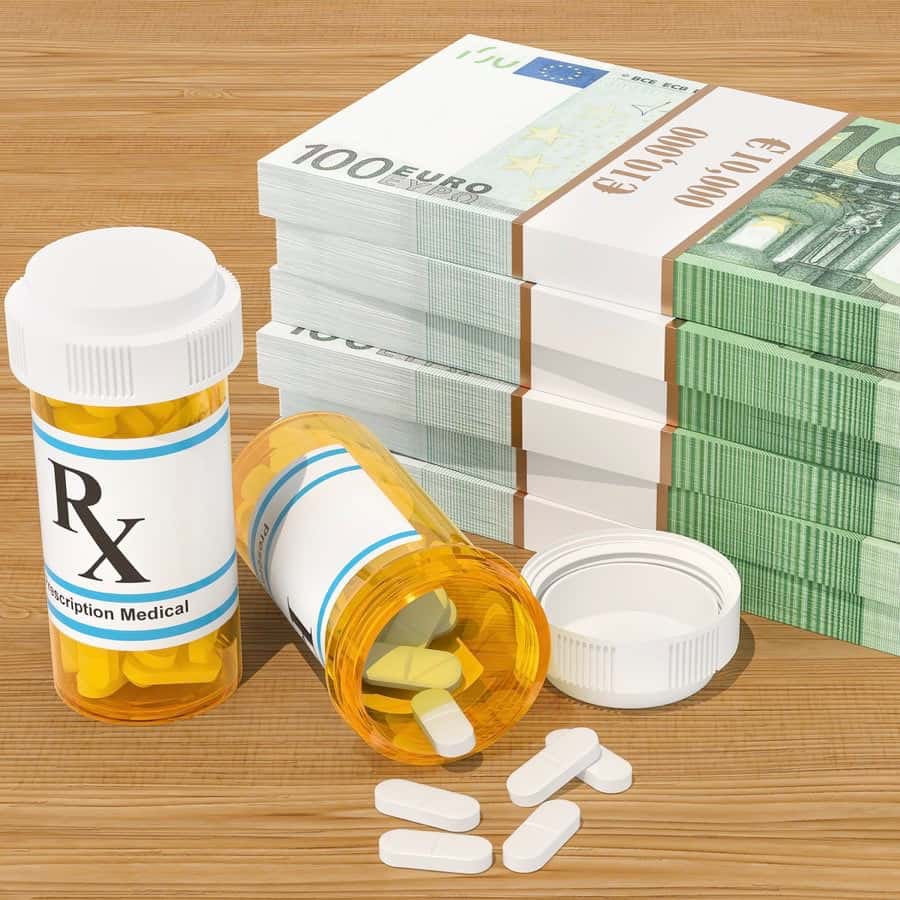
Americans pay more than the people in other countries when it comes to prescription drugs. That’s largely because other countries negotiate prices with pharmaceutical manufacturers. Until now, American drug companies have fiercely resisted the idea of negotiated prices. Many millions of dollars have been spent on litigation and lobbying to avoid negotiating prices. That is about to change because of the Inflation Reduction Act (IRA). Over the last year, the White House arm-wrestled the pharmaceutical industry over what the government will pay for some very pricey blockbuster drugs. The results are impressive.
Blockbuster Drugs Are Expensive in the US:
Let’s get one thing straight. This was a heavy lift. The US pharmaceutical industry has been allowed to charge pretty much whatever it wanted for decades. An argument they have frequently used to avoid negotiating prices in the US is that it will reduce incentives to develop new and better medicines.
Interestingly, many of the biggest and most successful drug companies are found in countries that have widespread price controls. Here are just a few examples:
- GSK (GlaxoSmithKline) has its headquarters in the UK
- Novartis has its headquarters in Switzerland
- AstraZeneca has its headquarters in the UK
- Sanofi has its headquarters in France
- Roche has its headquarters in Switzerland
- Novo Nordisk has its headquarters in Denmark
All these pharmaceutical manufacturers negotiate prices on their blockbuster drugs in their home markets. They just did not want to do that in the US. But Americans have become sick and tired of paying top dollar and subsidizing research and development for highly profitable drug companies around the world.
Politicians Pocket BIG Bucks from Pharma:
American politicians take a lot of money from the pharmaceutical industry. A couple of years ago I wrote an article titled:
Will Politicians Ever Lower High Drug Prices?
According to OpenSecrets.org, “Contributions to All Candidates, 1990-2024
HOUSE:
Democrats received a total of $79,219,342
Republicans received a total of $97,274,295
Independents received a total of $21,670
The TOTAL contributed to Congressmen: $176,515,307
SENATE:
Democrats received a total of $46,310,070
Republicans received a total of $43,642,076
Independents received a total of $1,119,206
The Total Contributed to Senators: $92,071,352
That of course does not count the amount spent on lobbyists or litigation.
With that kind of money supporting politicians of all political persuasions, it is easy to understand why negotiating prices was a huge challenge.
The Times They Are A-Changing:
The Inflation Reduction Act (IRA) was signed into law two years ago (Aug. 16, 2022). Its overall goal was to reduce the federal budget deficit. One key aspect was prescription drug reform. After many months of arm-wrestling, we have the very first baby steps.
Initially, 10 medications will be subject to price reductions. Many are blockbuster drugs. Just these 10 products cost the government over $50 billion each year. That’s your money! Patients had to kick in another $3.4 billion directly out of their own pockets.
There will be impressive Medicare price reductions on 10 blockbuster drugs. They include:
Januvia will have a 79% price reduction. According to FIERCE Pharma (Aug. 15), the cost of Januvia will go from $527/month to $113/month.
The Type 1 diabetes drug Fiasp will see a 76% reduction and go from $495/month to $119/month.
Here are Blockbuster Drugs MONTHLY Price Changes
- Eliquis will go from $521 to $231
- Jardiance will go from $573 to $197
- Xarelto will go from $517 to $197
- Farxiga will go from $556 to $178
- Entresto will go from $628 to $295
- Enbrel will go from $7,106 to $2,355
- Imbruvica will go from $14,934 to $9,319
- Stelara will go from $13,836 to $4,695
Just the Beginning:
The price changes that have been negotiated with drug companies won’t go into effect until 2026. In 2027 the pharmaceutical industry will have to negotiate price reductions on another 15 blockbuster drugs for Medicare.
Not surprisingly, Big Pharma is not happy. It has challenged the IRA on constitutional grounds. The industry has complained that the Inflation Reduction Act violates free speech rights. That seems a stretch to my non-legal brain. Not surprisingly, the pharmaceutical industry has replayed its old chestnut that lower drug prices will stifle innovation.
One Final Benefit of the IRA Legislation:
When people have life-threatening conditions like cancer or Alzheimer disease, they often find that the cost of their blockbuster drugs can be astronomical. Even with Medicare and supplemental insurance, the copay on a medication that costs $500,000 annually can break the bank. The Inflation Reduction Act will limit the amount of money a Medicare patient has to pay out of pocket to $2,000 annually.
What Do You Think?
Are you pleased that Congress has at long last started to curb the costs of blockbuster drugs? Please share your thoughts in the comment section below.

